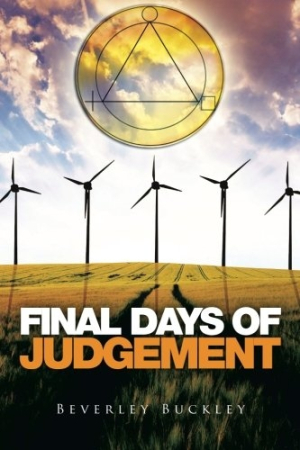Final Days of Judgement
Progressive and philosophical audiences will be enthralled by Buckley’s unconventionality and ingenuity.
Beverley Buckley’s Final Days of Judgement is an intriguing spiritual exploration of the origins and future of the universe, marked by its passionate outpouring of ideas on what is wrong with the world and when—and how—all will become right.
The book’s leading assertion is that soon, individual lives and individual pain, fear, and anger will be eradicated, and the universe will return to its original state, where love is everything and everything is love. Buckley also argues that people are slowly becoming aware of this shift and are changing their lifestyles accordingly, from adopting habits like eating local and organic food, to realizing that money does not equal true success. Incorporating aspects of Eastern spirituality, Christianity, physics, and environmentalism, the book has a remarkably modern and global perspective.
While the doomsday title gives a dark and intimidating first impression, Buckley’s brand of spirituality, though it is certainly nontraditional, is more about compassion and awareness than it is focused on the end of the world. While it firmly predicts an overhaul of the world as we know it, the book also emphasizes that the new order hinges on the absence of judgment, a notion that is the exact opposite of most in end-of-the-world discourses.
Though many schools of thought are taken into account, the book often has more of a stream of consciousness style than it does an academic one. The interjection of supposedly channeled messages from the “Elohim,” godlike figures said to give Buckley prophecy-like information about the future of the universe, makes the book more accessible to those unfamiliar with quantum physics or chakras but also lends it a somewhat offbeat flavor.
A unique vocabulary operates throughout and is particularly prevalent in presentations of the finer points of the book’s theory. Terms such as “clearing blocks” and “vibrational frequency” are distinctive, but they also become repetitive, and the syntax gets somewhat muddled without a concise and detailed definition of the book’s terms. The process of Stress Defusion, in particular, requires a much clearer explanation.
The work presumes a great deal of prior knowledge about string theory, holographic principles, and other extremely complicated theories in physics on alternate universes, as well as concepts in other disciplines, like synchronicity. This further obscures its already elaborate concepts.
However, what the book lacks in clarity, it makes up for in conviction. Passionate and compelling passages assert that the key to a better world is a positive and global outlook, mindful treatment of the earth, and finding validation internally rather than externally.
Progressive and philosophical audiences will be enthralled by Buckley’s unconventionality and ingenuity in Final Days of Judgement.
Reviewed by
Paige Van De Winkle
Disclosure: This article is not an endorsement, but a review. The publisher of this book provided free copies of the book and paid a small fee to have their book reviewed by a professional reviewer. Foreword Reviews and Clarion Reviews make no guarantee that the publisher will receive a positive review. Foreword Magazine, Inc. is disclosing this in accordance with the Federal Trade Commission’s 16 CFR, Part 255.

